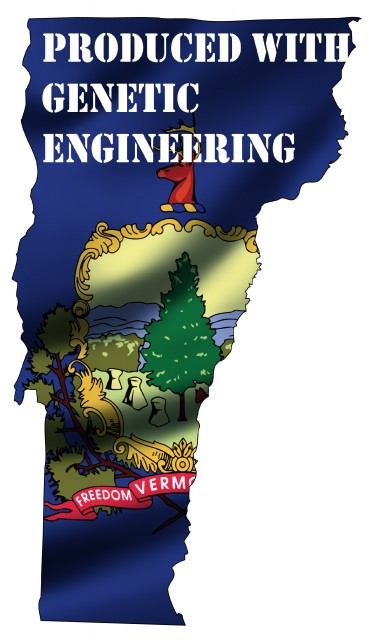
While some states have passed GMO-labeling laws which contain a triggering-clause before they go into effect, Vermont has officially become the first state to pass a law, without any triggering-clause, requiring food manufacturers to label food as containing genetically modified organisms (“GMOs”). On May 8, 2014, Vermont Governor Peter Shumlin signed into law a bill which “proposes to provide that food is misbranded if it is entirely or partially produced with genetic engineering and it is not labeled as genetically engineered.”
The new labeling requirements go into effect on July 1, 2016. Food products require certain labels if they: 1) are offered for retail sale in Vermont; and 2) are entirely or partially produced with genetic engineering (which is a defined term under the new law). Vermont’s law requires the following labeling, depending on the nature of the food:
- if the genetically-engineered food is a packaged raw agricultural commodity, the label must read “produced with genetic engineering”;
- if the genetically-engineered food is a raw agricultural commodity which is not separately packaged, the retailer must post a label near the food which reads “produced with genetic engineering”;
- if processed food contains any product or products of genetic engineering, the label must read “partially produced with genetic engineering”; “may be produced with genetic engineering”; or “produced with genetic engineering.”
The new law also prohibits food products produced, in whole or in part, from genetic engineering from being labeled or advertised as “natural,” “naturally made,” “naturally grown,” “all natural,” or any similar words which may mislead a consumer. The law does provide for several exemptions from its labeling requirements, including when the genetically engineered materials in processed foods account for less than 0.9 percent of the product’s total weight.
Challenges to the Vermont law are expected. In fact, the new law establishes a special fund to allow the state to pay costs or liabilities incurred in implementing and administrating the law. Food manufacturers and retailers, however, are admonished to closely examine these new labeling requirements. If challenges are unsuccessful, those who violate the law can face a fine up to $1,000 per day, per product, which is mislabeled.
If food manufacturers sell products in Vermont, it is encouraged that they examine their packages and ingredients to determine whether changes may have to be made before the July 1, 2016 deadline. Cozen O’Connor’s Food and Beverage Industry Team is available to guide manufacturers through the implementation of this new law.

